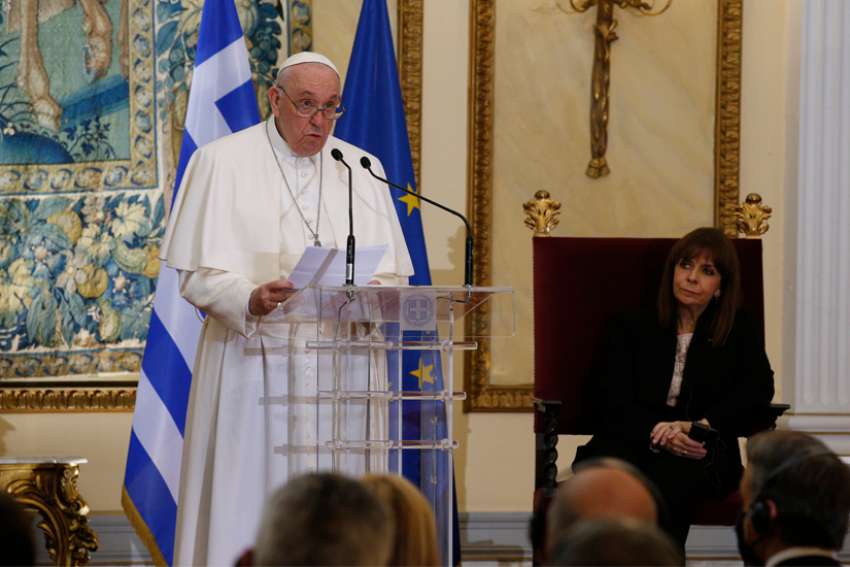Others will snort that if the Church in question is the Roman Catholic Church, it would be better to spend its energies repenting and repairing its past than meddling in our political present and future.
Leave such critics to their sneezing and snuffling. There is no better time than right now for lay Catholics and the clergy alike to raise prudent voices of leadership against what Pope Francis has identified as a deepening democratic deficit puts the politics of the common good in peril.
“(W)e cannot avoid noting with concern how today — and not only in Europe — we are witnessing a retreat from democracy,” the Holy Father said during his visit to Greece in early December.
“Democracy requires participation and involvement on the part of all; consequently, it demands hard work and patience. It is complex, whereas authoritarianism is peremptory, and populism’s easy answers appear attractive.”
Nothing in those words binds us as Catholics — or calls the Church herself — to particular party partisanship. Rather, they remind us of our duty, born of our faith itself, to bring the supreme gift of Christian charity to the political sphere. As I never tire of reflecting upon, Pope Emeritus Benedict XVI expressed this with extraordinary beauty in his first encyclical, Deus Caritas Est, on Christmas Day 2005.
Benedict distinguished between the proper pursuit of politics, which is justice, and the ministry of the Church, which is love. Precisely because our mission is love, he said, we are inextricably concerned with engagement toward a politics that seeks the just ordering of the common good.
“Love — caritas — will always prove necessary, even in the most just society. There is no ordering of the State so just that it can eliminate the need for a service of love. Whoever wants to eliminate love is preparing to eliminate man as such,” he wrote.
These are words for all of us to live by as Catholic citizens. They are at the heart of Pope Francis’ insistence that: “Politics is, and ought to be in practice, a good thing as the supreme responsibility of citizens and as the art of the common good….”
Insisting on politics as not only a good, but also the highest responsibility of citizens, is radically contrarian in this moment when the p-word is 99 per cent word-associated with corruption, venality, even harbingers of evil. Such associations are counsels of despair, however. For as Francis and Benedict before him exhort us, our duty of love necessarily obliges working through the ordering mechanism of politics in the pursuit of the best and fullest possible version of justice we can humanly achieve. For all its faults and painfully evident failings, what system other than democracy offers us even the possibility of such working through?
I’ve spent my working adult life with my non-partisan gaze firmly fixed on politics in its many splendored forms. My first paying job as a reporter was covering a small rural council where a galvanizing issue was whether a proposed emergency warning system would upset a particular farmer’s dairy cows and put them off their milk. I later covered the House of Commons where the animal farm was of a distinctly different order. I have to say I have never seen authoritarian, anti-democratic shadows deeper and darker than they are right now across the Canada I love. Their source isn’t a single political party, ideology or even approach to governance.
Rather, it’s the denigration of politics itself by the elevation of lazy, cynical disparagement to the apex of democratic conduct. Far beyond the corruption of power, it’s the reduction of power to a brute instrumentality by which it serves as an end in itself, not the means for an ordering of justice through the engagement of all citizens. In short, it is a severe spiritual malaise.
Let others sniff as they will. Our work as Catholics, Pope Francis has made clear, is cut out for us. After all, we know a thing or two about birth, death and resurrection that assures not the elimination, but the salvation, of man.
(Stockland is publisher of Convivium.ca and a senior fellow with Cardus.)


